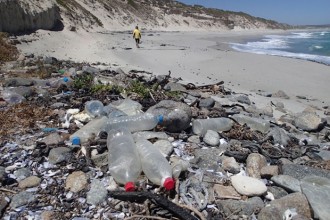South Africans could see the creation of 78000 new jobs in less than 20 years if the government seizes the opportunity to go green, according to a report released by Greenpeace Africa and conducted by Australian academic Jay Rutovitz of the Sydney University of Technology.
Greenpeace’s latest research around the Energy Revolution scenario shows that a switch from coal to renewable electricity generation would not only reduce South Africa’s carbon dioxide emissions by 60% by 2050 but also create more jobs than if the country continues along the business as usual trajectory.
“South Africa faces two seemingly intractable problems; poverty and joblessness, “says Greenpeace Africa’s Melita Steele. “It is time for South Africa to begin investing in people rather than in fossil fuels. All we need now is bold energy policy from our leaders.”
Especially in the context of today’s economic instability, investing in renewable energy technologies is a “win-win-win” scenario: a win for energy security, a win for the economy and a win for the climate. While business as usual energy scenarios like the Long Term Mitigation Scenarios (LTMS) “Growth Without Constraints” case come at the cost of the climate and the economy; the Energy [R]evolution makes a clear case for “business as an unusual” – where renewable energy supplies 75% of South Africa’s electricity by 2050.
The new report: ‘South African Energy Sector Jobs to 2030: how the Energy [R]evolution will create sustainable green jobs’ is based on Greenpeace’s Energy Revolution and shows how South Africa only has a very short window to make key decisions on the future of our energy supply, as the government forges ahead seeking low cost dirty solutions to the country’s energy crisis.
Rutovitz reveals that South Africa’s current renewable capacity is very low. The good news is this can be turned around very quickly with large-scale investment in renewable energy. “The country not only has incredible resources of sun and wind, but South Africa could well become a leading renewable energy technology exporter,” adds Rutovitz. Greenpeace argues that it is imperative that South Africa moves away from coal and the even more dangerous option of nuclear energy to avoid runaway climate change.
“The truth of the matter”, says Steele, “is that the old energy solutions aren’t that, they’re problems. The Energy [R]evolution provides a real alternative, creates jobs, provides training, enhances skills and guarantees a sustainable future. That’s what we’re putting on the table. We challenge our leaders to take responsibility now.”
The liveeco team



